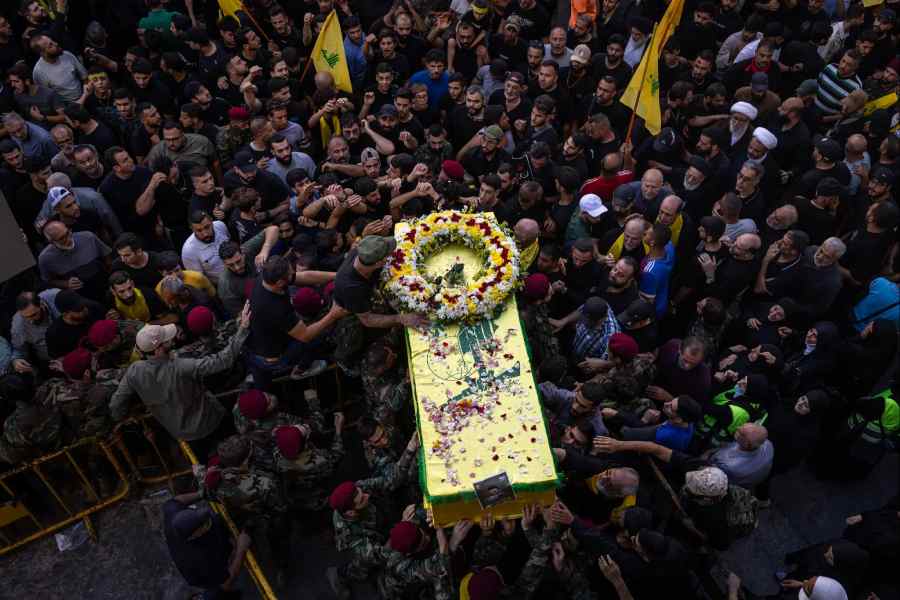In the waiting rooms of a Beirut hospital, exhausted families slumped on couches, waited anxiously for doctors’ updates and wept. Nearby rooms held their loved ones, injured when pagers and walkie-talkies used by Hezbollah suddenly exploded across Lebanon this week, blinding and maiming many of their owners.
“I have no hope,” said a woman whose son-in-law had lost an eye and fingers on both hands. He had been lying down when his pager beeped and he picked it up — only for it to blow up in his face.
She gave only her first name, Joumana, and would not say what her son-in-law did that required a pager. But she made a vow: “The only revenge that will get us justice is to get rid of Israel.”
Across Lebanon on Thursday, hospitals were packed and people were on edge after hand-held communications devices imported by Hezbollah, the militant group and political party, blew up in waves across the country on two successive days. Dozens of people were killed and thousands of others injured in attacks that spread a terror that simple objects carried in people’s bags and pockets could readily become bombs.
Lebanese, US and other government officials have said that Israel launched the attacks by remotely detonating devices that had been outfitted with explosives before they were sent to Hezbollah. Israeli officials have not confirmed or denied their country’s involvement.
For 11 months, Hezbollah has been attacking sites in northern Israel in support of its ally Hamas in the Gaza Strip.
Israel has responded by bombing and assassinating Hezbollah leaders in Lebanon, and civilians have fled areas on both sides of the border.
Lebanon’s health ministry on Thursday raised the death toll from the attacks on Tuesday and Wednesday to 37, adding that nearly 3,000 people had been wounded.
Hezbollah did not release figures on how many of its members were killed or injured, but the devices were distributed solely to its people, and multiple interviews with officials and relatives suggested that most of the victims were connected to the group, although some were civilians or had noncombat roles in the organisation.
Hezbollah publicly mourned many of the dead as its fighters, including one teenager, born in 2008, who was 15 or 16. At least two other children, a 9-year-old girl and an 11-year-old boy, were among the dead, as was at least one woman.
New York Times News Service











